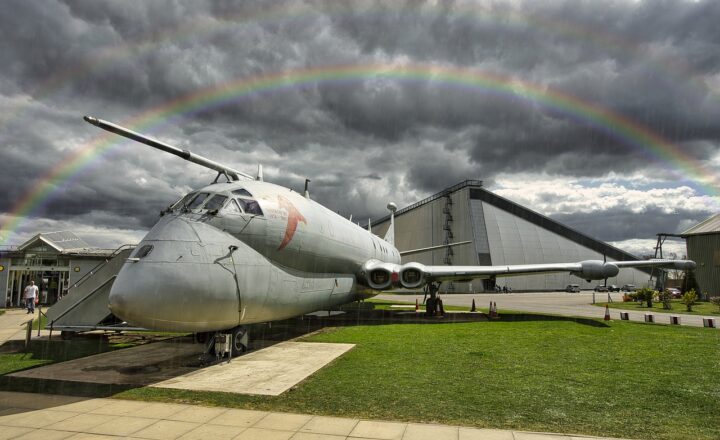
Political espionage is an intriguing blend of covert operations, clandestine meetings, and the intersection of authority and intrigue. Throughout history, governments have engaged in espionage to protect national interests, secure advantages in political arenas, or gather information on rivals. The roots of political espionage go deep into ancient times, entrenched in the very fabric of governance. In this article, we will journey through the fascinating history of political espionage, exploring its evolution and legacy across various eras and cultures.
1. The Origins of Political Espionage
The practice of espionage dates back to the earliest civilizations. In ancient China, Sun Tzu’s “The Art of War” emphasized the importance of information as a military asset. He stated, “All warfare is based on deception,” highlighting how spies could provide critical insights about the enemy. Ancient empires, such as the Egyptians and Romans, also employed spies to gather intelligence and ensure the security of their territories.
In the medieval era, espionage became a crucial element of court politics. Kings and queens sent agents to infiltrate rival courts to collect sensitive information about political maneuvers. Notable figures like Niccolò Machiavelli discussed the role of espionage in maintaining power in his book, “The Prince.” As statecraft evolved, so did the methods of political espionage, leading to a more organized and systematic approach.
2. The Renaissance and the Rise of Espionage Networks
During the Renaissance, the development of nation-states solidified the importance of intelligence work. European powers, such as England and France, began to establish more formal intelligence services. Queen Elizabeth I’s spy master, Sir Francis Walsingham, is often considered the father of modern intelligence systems. He created an extensive network of informants and agents to monitor threats, notably thwarting the Spanish Armada through the use of intelligence.
Meanwhile, the secretive world of espionage was mirrored in literature and political theorizing of the time. Works like “The Art of War” and Machiavelli’s writings encouraged the idea of using deception as a means to political success.
3. The Age of Enlightenment and Military Intelligence
The Age of Enlightenment brought a shift in the perception of espionage. Scholars began to analyze and document the art of war more systematically. The Prussian military intelligence began to develop in the 18th century, pioneered by figures like Frederick the Great, who recognized the importance of information in warfare.
As wars became more complex, the need for accurate intelligence grew. This era saw the use of codes, ciphers, and interpretative analysis to assist military planners in decision-making processes. Espionage became a professional endeavor with a focus on operations rather than just information gathering.
4. The 20th Century: Espionage in Times of War
The advent of the 20th century marked a seismic shift in the scale and technological capabilities of espionage. World War I marked one of the first times that intelligence agencies were utilized on a large scale. Nations like Germany and Britain established formal intelligence departments, employing cryptography and communication interception.
The interwar period saw the rise of the Soviet Union’s intelligence apparatus, which focused on gathering political intelligence not just militarily but also through economic and industrial espionage. The establishment of the KGB (Komitet Gosudarstvennoy Bezopasnosti) in the 1950s solidified the Soviet Union’s capacity for intelligence work.
World War II further advanced these techniques, with the Allied forces employing double agents, codebreakers, and even deception operations such as Operation Fortitude, which misled the Nazis regarding the D-Day invasion’s location.
5. The Cold War: A New Era of Espionage
The Cold War epitomized the espionage landscape as political and military rivalry reached unprecedented levels. Intelligence agencies became central to nation-state strategy, with the CIA and KGB leading the charge. Techniques such as satellite reconnaissance, electronic surveillance, and psychological operations were implemented extensively.
Controversial actions like the U-2 incident, where an American spy plane was shot down over Soviet territory, exemplified the high-stakes nature of political espionage during this era. Moreover, espionage became entwined with counterintelligence, giving rise to an intricate game of deception and counter-deception.
Informants and defectors also played pivotal roles, with figures like Aldrich Ames and Robert Hanssen betraying their countries, further emphasizing the delicate balance of trust and secrecy inherent in espionage.
6. The Digital Age and Modern Political Espionage
In the 21st century, the landscape of political espionage has changed dramatically with technological advancements. Cyber-espionage has emerged as a primary threat, involving hacking into political institutions, corporations, and even personal communications to obtain sensitive information and data.
Recent events, such as the alleged Russian interference in the 2016 U.S. presidential elections, highlight how digital platforms can be used for espionage and influence operations. Today, the blurred lines between state-sponsored espionage, private contractors, and civil society make the dynamics of espionage increasingly complex.
Moreover, social media has created new avenues for information dissemination and belief manipulation, as artificial intelligence (AI) algorithms exacerbate the challenges of misinformation and subversion.
7. The Ethics of Political Espionage
The ethical implications surrounding political espionage continue to spark debate among scholars and practitioners. With the necessity for intelligence must come the responsibility of upholding ethical standards. Questions arise over the line between national security and individual privacy, leading to discussions on surveillance practices, data protection, and information consent.
Moreover, as political rhetoric increasingly undermines trust in institutions, the call for greater transparency and fairness in intelligence matters becomes paramount. Balancing state security needs with democratic values presents a consistent challenge for policymakers and citizens alike.
Conclusion: The Legacy of Political Espionage
The history of political espionage is as old as politics itself. From ancient civilizations to the digital age, the quest for information has shaped political landscapes, influencing the outcomes of wars, the rise and fall of governments, and the stability of nations. As we continue to navigate the complexities of modern geopolitical dynamics, understanding the historical context of espionage enriches our perspective on today’s challenges.
While espionage remains a tool of power, its implications resonate in broader discussions regarding ethics, privacy, and state sovereignty. Ultimately, the craft of espionage, whether through spies in the shadows or cyber operatives in the depths of the internet, is likely to persist as long as political competition exists, reminding us that knowledge is indeed power.








